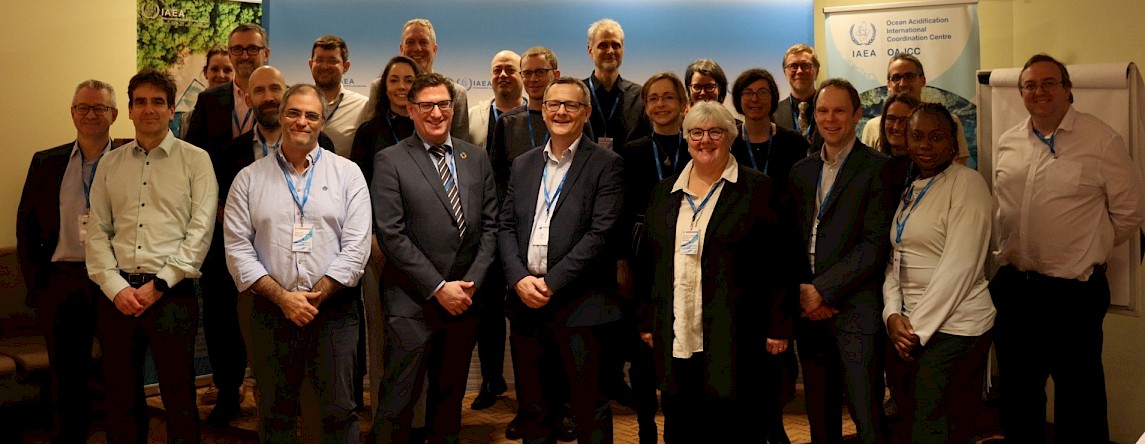Radioactive Substances Committee 2025
OSPAR’s Radioactive Substances Committee (RSC) met in February at the kind invitation from the International Atomic Energy Authority (IAEA) in Monaco. The IAEA is the central intergovernmental organisation working to promote the safe, secure and peaceful uses of nuclear energy, science and technology.
The maritime surroundings of Monaco proved inspirational as RSC ramped up ambitions in the build up to OSPAR’s Ministerial meeting in Vigo (Spain) on June 26. RSC discussed the opportunities offered by this meeting to gain political attention for its important work.
Appropriate to the meeting location, one opportunity is to promote the revised practical arrangements between the IAEA and OSPAR that build on and strengthen our framework of cooperation and consultation that enables knowledge exchange and fosters synergies in areas of common interest, such as the deployment of new nuclear technologies, and sharing data to avoid duplication and maximise efficiencies.
Another opportunity is the finalisation of new OSPAR common indicators to track health of the North-East Atlantic. The new indicators will build on previous assessments undertaken by RSC and track radioactive discharges from the nuclear sector and the related issue of environmental concentrations of artificial radioactive substances. These indicators will put OSPAR in a good position to continue its assessment and be of particular importance in light of the civil nuclear ambitions of several OSPAR Contracting Parties to support their energy security and net-zero goals.
 RSC also discussed its ‘routine’ work which is vital in delivering its commitments under the North-East Atlantic Environmental Strategy (NEAES) 2030 and the 2024-2028 Joint Assessment and Monitoring Programme (JAMP). This saw Belgium, France and Portugal deliver their reports on Best Available Technology (BAT) for nuclear discharges which is required of all Contacting Parties with a nuclear industry who must deliver a report to their peers every 6 years under OSPAR Recommendation 2018/01 on Radioactive Discharges.
RSC also discussed its ‘routine’ work which is vital in delivering its commitments under the North-East Atlantic Environmental Strategy (NEAES) 2030 and the 2024-2028 Joint Assessment and Monitoring Programme (JAMP). This saw Belgium, France and Portugal deliver their reports on Best Available Technology (BAT) for nuclear discharges which is required of all Contacting Parties with a nuclear industry who must deliver a report to their peers every 6 years under OSPAR Recommendation 2018/01 on Radioactive Discharges.
The utility of the group’s annual reporting from the nuclear and non-nuclear sectors was also debated, and work was begun which will see the reports presented in a more accessible format.
When nuclear energy is being considered as part of the green transition, the work of RSC chaired by Adam Stackhouse (United Kingdom), becomes very relevant and continues to build up on the 5th Periodic Evaluation and the Radioactive Substances Thematic Assessment published under OSPAR’s 2023 Quality Status Report showing that pollution by radioactive substances has been prevented.
